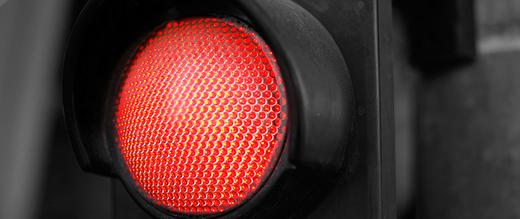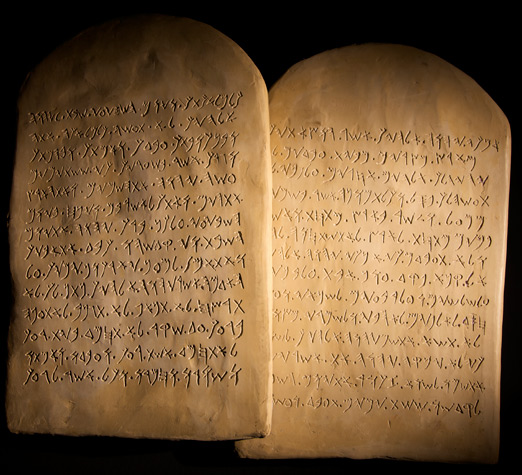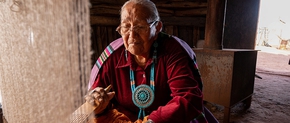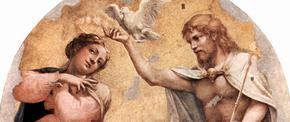The views expressed in our content reflect individual perspectives and do not represent the authoritative views of the Baha'i Faith.
Late at night, you come to a red light on a deserted street. You’re tired, so you don’t stop–you go straight through the intersection.
There seems to be something about human nature that pushes us to test and sometimes break the rules. Why do we do this? Why is it so hard to wait for the green lights of life, or to accept that some lights will always stay red? Perhaps we feel we have better intelligence, judgment or practical experience than the “rule setters”– or the rules themselves.
So, we question and debate the need for a particular civil law–and we do this in our spiritual lives as well. Sometimes spiritual laws may seem the most intrusive, because they address very personal conduct, including the growth and development of our souls.
The decision to moderate or change a behavior, in light of spiritual guidance, may depend on an understanding of the purpose and role of those spiritual lawgivers, the successive messengers, prophets and manifestations of God.
Baha’u’llah, the founder of the Baha’i Faith, clarifies this purpose:
God’s purpose in sending His Prophets unto men is twofold. The first is to liberate the children of men from the darkness of ignorance, and guide them to the light of true understanding. The second is to ensure the peace and tranquility of mankind, and provide all the means by which they can be established. – Gleanings from the Writings of Baha’u’llah, pp. 79-80.
The Baha’i teachings explain the role of a new manifestation of God, likening it to the care of a divine physician:
O thou yearner after the Kingdom! Each Manifestation is the heart of the world and the proficient Physician of every patient. The world of humanity is sick, but that skilled Physician hath the healing remedy and He bestoweth divine teachings, exhortations and advices which are the remedy of every ailment and the dressing for every wound. – Abdu’l-Baha, Baha’i World Faith, pp. 380-381.
These divine physicians, these messengers of God, do not operate in a vacuum. As humanity evolves, they appear successively in the world to offer new teachings to lead us to a higher level of love, kindness, unity and civilization. They institute new laws, and reaffirm or abolish previous ones. They impart the roadmap for the progress, physical safety, security, and spiritual well being of humanity for today and into the future. This divine roadmap goes far beyond our own capacity to create and, at times, even understand.
For example, in the Old Testament, Mosaic Law prohibited eating pork. At that time it exceeded human capacity to see or understand the microscopic world–which would have explained the eleven different debilitating and terminal diseases that come from eating pork not properly raised, refrigerated and cooked. Technology had not advanced to the point where people could reliably insure food safety. Moses prohibited pork by taking into account the ignorance of that era, giving those who accepted his message an important red light that pertained to their health. His followers, who made the decision to follow his instruction, may have been driven by faith rather than any real understanding of why it was necessary. In hindsight we can see that Moses, a divine physician, forbade the use of pork as a mercy to humanity.
In much the same way, Baha’u’llah has instituted a few red lights, as well. Some may be easy to observe, while others, such as the Baha’i prohibition of the recreational use of drugs and alcohol, or the Baha’i laws discouraging gossip and backbiting, might seem more difficult for some. After all, don’t those activities enjoy widespread social acceptance and even encouragement? How does one give up a behavior when the world you live in gives you a green light?
That depends on who we think is directing traffic. Do we see Moses, Christ, or Baha’u’llah as messengers of God, or just great spiritual teachers with some good ideas? If their teachings come from a Supreme source, a loving and just God, wouldn’t we want to do our best to abide by them?
In this era, the Baha’i teachings say, no one should impose religion on anyone else. That means we now have the intelligence, the capacity and the duty to independently investigate the truth. We can decide for ourselves. That’s what the message of Baha’u’llah requests of everyone—to evaluate the Baha’i principles and determine, for themselves, whether or not to accept them.
Once we make that decision, the test of our faith becomes our willingness to bring our behavior in line with the red and green lights we encounter. Once that starts to occur, then understanding dawns, along with the physical, psychological, and spiritual safety our new inner awareness creates.
When we consider the instructions of the divine educators, and try to adhere to them, we do so not only in the light of what we know, but in the darkness of what we don’t.


















Comments
Sign in or create an account
Continue with Facebookor